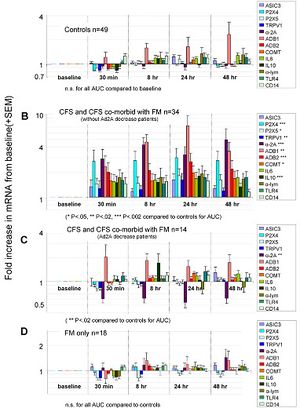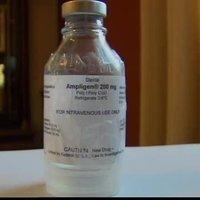Portal:Treatments/Selected article
- These are selected articles related to Treatments which appear on Portal:Treatments.

Exercise may be recommended as part of a wellness regimen in chronic illness. However, exercise intolerance is a central feature of ME/CFS, and patients show multiple abnormal responses to exercise. ME/CFS patients report that increased activity has reduced their physical and cognitive capacity. (more...)
Pacing is an activity management strategy to help ME/CFS patients limit the number and severity of relapses, and helps avoid deterioration, without avoiding all activity. First described by health psychologist Ellen Goudsmit in 1989, it gives patients the advice to: "do as much as you can within your limits".
Pacing recognizes research showing an abnormal metabolic and immunological response to exercise in ME/CFS.
Pacing has been used as a management strategy in a number of multi-component clinical treatment trials, and in several large patient surveys the majority of patients found be helpful (more...)

Ampligen.jpg®︎ (generic name rintatolimod) is a drug with immunomodulatory and antiviral properties that is approved for severe ME/CFS in Argentina. Although Ampligen is not FDA-approved for ME/CFS it is available under early access or compassionate care programs in the United States, EU countries, and Turkey.
Ampligen has been shown to raise the reduced natural killer cell (NK) function found in ME/CFS patients (more...)
Low Dose Naltrexone (LDN) refers to very small doses of the generic drug naltrexone, which is normally used to treat drug or tobacco dependence. LDN is used by some ME/CFS patients to reduce the neurological symptoms of ME/CFS (more...)
Aripiprazole, better known under the brand name Abilify, is an atypical antipsychotic and anti-inflammatory drug recently investigated for use in ME/CFS.
Low dose aripiprazole appears to reduce brain inflammation, and a retrospective study of 101 patients showed that most patients using it improved, with reductions in fatigue (more...)

